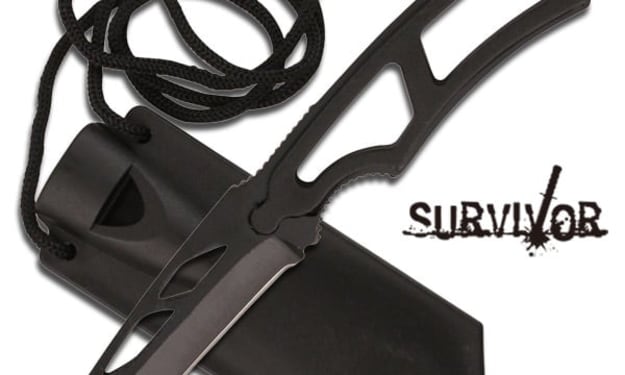Down Right Worthy is the Cutest Girl on Instagram
How one page sums up the politics of disability in the most disarming way

I was scrolling through my Instagram last evening. I was super tired, but unable to let my phone go for the night. During my half-hearted scrolling using only my one thumb, hoping to catch some useless celebrity gossip or last minute news. In an ad for Tik Tok, or a suggestion to follow. I can’t honestly remember now. I discovered Down Right Worthy, or @downrightworthy.
Cute name, I thought.
I curiously scrolled through adorable pictures of a young woman with Down Syndrome making a splash on the platform for her contagious smile, dance moves, and obsession with brushing her siblings hair.
Her name is Worthy, hence the catchy Down Right Worthy currently being managed by her mom. Worthy was adopted by the family six years ago as a special needs adoption from China. As an adoptive mom to children with special needs I think adoption is amazing. It’s a unique and fantastic journey.
Any social media platform that celebrates adopting a special needs child in a positive way is exciting and necessary. There are thousands of children waiting for forever homes in the United States and worldwide.
Worthy is adorable. She is also an extrovert, whose infectious smile lights up her Instagram page. Her dance moves and attitude make the perfect combination of Instagram magic, and if she were my daughter it would be hard to resist sharing her with the world.
Still, the success of the Instagram page immediately proved another example of ableism dictating the acceptable types of disability allowed to break in the mainstream culture. Obvious of the lack of inclusion for disabled individuals as a whole.
The problem is not with Worthy, or her family. The whole family seems caring, and
Worthy is obviously adoring the attention. She should get the attention. She seems very lovely.
I scrolled through the comment section. Thousands of people spread heart emojis, calling out their mutual love for this young lady and her incredible family. Despite the love, there was nothing inclusive about their comments.
I am sure they thought they were spreading inclusivity, but it’s too late. Down Syndrome has already been stereotyped and repackaged. Made inclusive over twenty years ago by the Television show “Life Goes On.”
People born with Down Syndrome are already categorized as perpetually happy and forever child-like. A stereotype that is not reality, and based on an assumption that people with disabilities are only visible and accepted if they appear non frightening and easily controllable.
This stereotype is also highly controversial within the Down Syndrome parent group discussions and forums online. Many parents fight the stereotype of a perpetually happy child like person, and cringing when they see it celebrated.
It’s simply not just the stereotype that’s the issue, but how the stereotype becomes the public perception of how disabled people are allowed to behave and appear in their communities. Inclusion is only for people who fit this narrow mold of weak, small, and innocent.
It feels as though neurotypical society can only include a disabled person they think they can easily control. Online memes suggesting the disabled are closer to God, or are true angels among us further this theory.
As if the purpose of the disabled individual isn’t their own dreams and desires. It’s instead an urgency to teach a lesson to others, like an inspirational quote. Void of acknowledging the person. Disability, after all, is just a medical diagnosis.
Children with disabilities are human beings. They are moody teenagers, jealous lovers, and curious seekers. They are loud, awkward, messy, and completely fantastic human beings.
It’s hard to be inclusive when the normal of disability is not normalized. The fact that many children with disabilities have mental health and behavior issues inside and outside the normal experience of growing up.
There are two special needs communities. One that is accepted, and one that further isolates those children and families.
My son is actually not allowed to participate in community programs that our community designed and funded for the disabled. Programs, services, and social groups other families freely enjoy. All because his disability includes a behavior component that requires a little extra support.
Children with behavioral or mental health challenges are further ostracized, excluded, and families burden by the double whammy of being disabled and mentally ill. Parents are blamed instead of congratulated and praised for what is equal bravery in the face of extreme isolation.
Worthy looks like a small child. She is also eleven. She is a young woman, a middle school girl. The fact she loves doing hair isn’t surprising.
It’s not Worthy or her family that is the problem. They are celebrating her in a totally appropriate and infectious manner. It’s the rise of her success within mainstream society. It’s the stunning realization that her followers have amassed because Worthy fits the stereotype of disabilities the neurotypical society is comfortable.
Inclusion is always about a comfort level for the already included. Innocence, diminished physical size, and pleasant demeanor are things society accepts because they can be easily controlled. These traits can be made to fit into the narrow view of able bodied without upsetting the status quo.
It’s acceptable to stare at, blame, shame, and call the police on people where the disability is making someone in the neurotypical society uncomfortable.
Inclusion is not forcing people with disabilities to adhere to strict rules of acceptability that diminishes them and silences their voices. Neurotypical society doesn’t get to pick and choose what they are willing to include. They include everyone, or no one. Remembering that a child with Down Syndrome was just as born into their disability as another child with Autism, or another rare genetic disease like my son.
It’s not equal, and it’s discriminatory and unfair. It can change by acknowledging the disparity, and normalizing every disability. Asking what can be done to make something more accessible, instead of less accessible. It only happens when every person does their part, in their community, in their grocery store, or anywhere they venture in the world.
The world doesn’t have enough of Worthy, and the many other faces that tell the story of childhood through differing viewpoints.
About the Creator
joy ellen sauter
Joy lives in Seattle, Washington, but is a native east coaster. She has kids and dogs- all adopted through foster care. She writes about mental health, history, pop culture, foster care, trauma, human rights, and parenting.






Comments
There are no comments for this story
Be the first to respond and start the conversation.